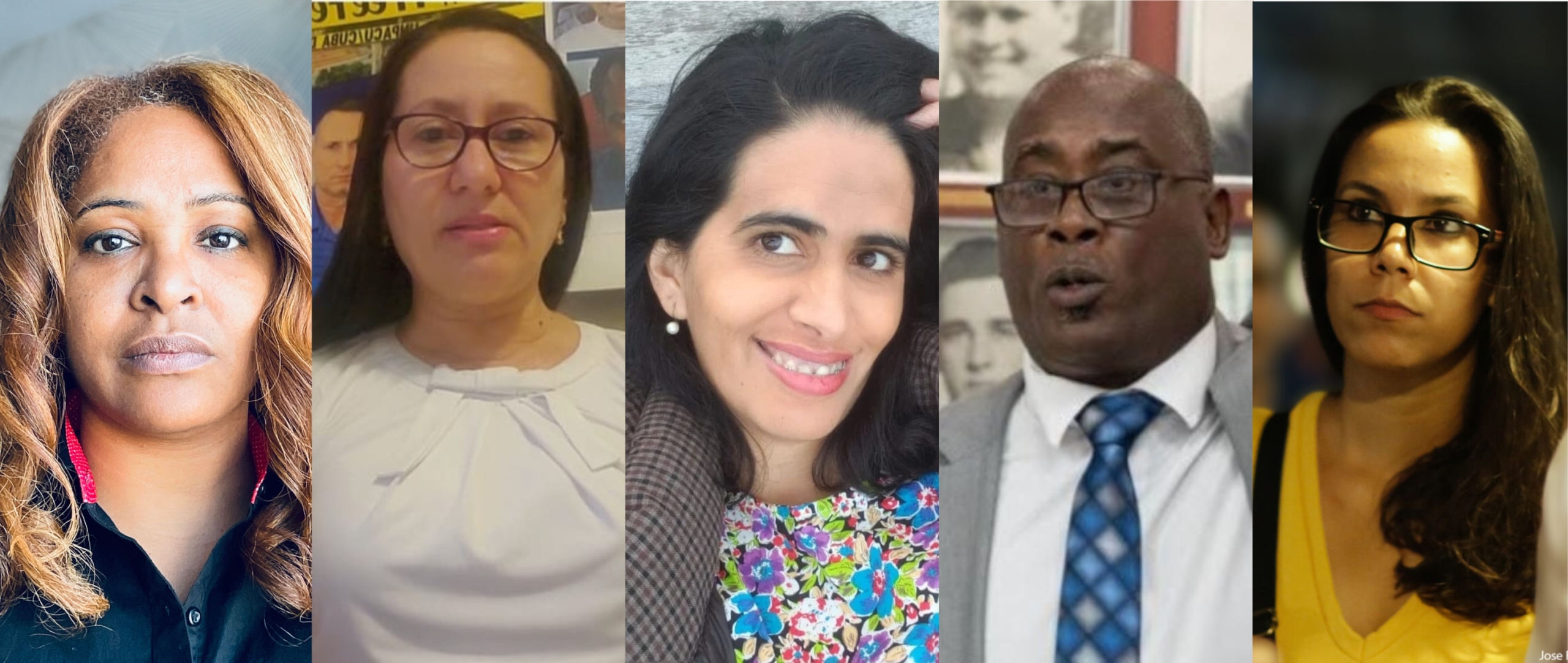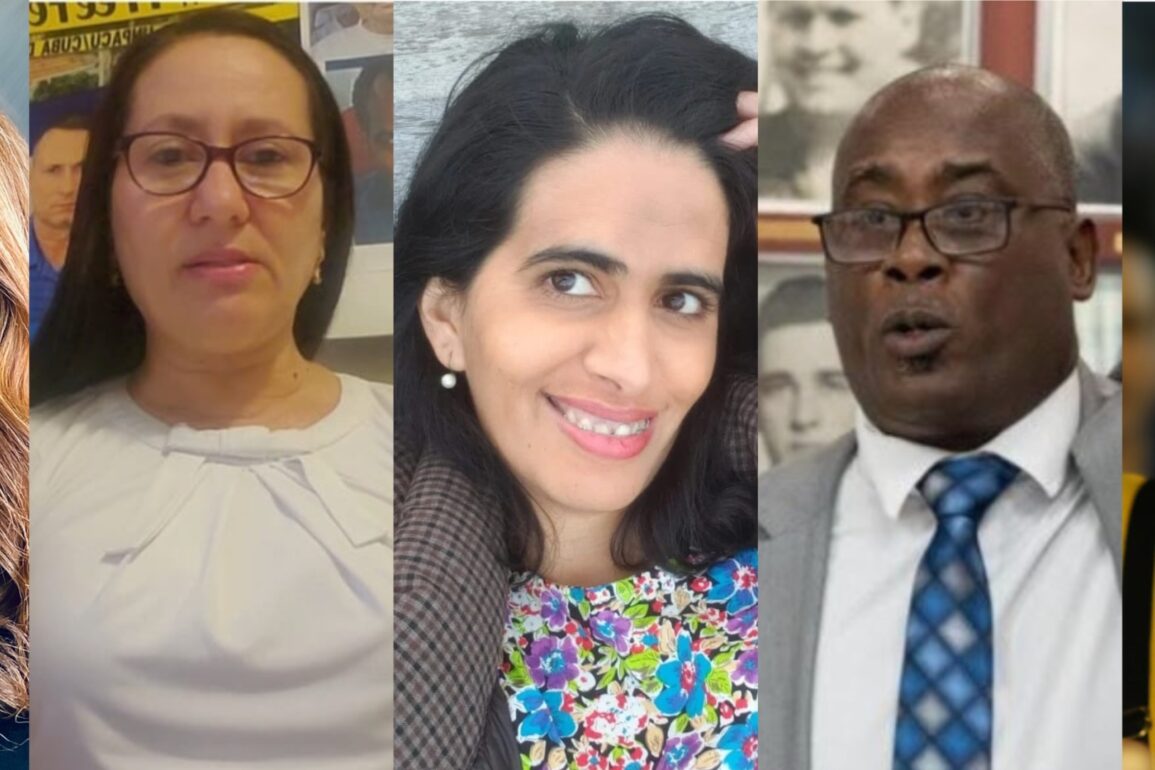
By Cristhian Manuel Jiménez, Caribbean Campaigner at Amnesty International
On 6 November, the UN Human Rights Council will conduct its Universal Periodic Review (UPR) of Cuba, providing an important opportunity to address the state of human rights in the country. This process enables Cuba’s civil society, long ignored by the government, to be heard and for UN Member States to express their concerns and recommendations to the authorities.
Ahead of this review, activists and relatives of prisoners of conscience in Cuba share their expectations and calls to the international community:
Anamely Ramos, Cuban activist, profesor, and art curator:
“My expectation with regard to the United Nations Periodic Review of Cuba is for it to finally reflect the reality of what Cubans experience. Both the Cubans in Cuba as well as those of us who are abroad and not allowed to return because they force us to remain in exile.
“The reality of what political prisoners experience in Cuba should be reflected, as there are more than 1,000 prisoners who are being repressed in the jails. It should also reflect the threats received by the families of those prisoners when they decide to denounce what is happening to them and the daily reality of being separated from them.
“It should reflect the reality of those kids who today live without their mothers and fathers – mothers and fathers who are innocent, who have committed no crimes. It should reflect the reality of those elderly folks who have been deprived of their sons and daughters, who have no source of income because those sons and daughters were their only support.
“It should reflect the reality of all of the threats and all of the persecution suffered by those who attempt to exercise their freedom of expression, who try to exercise their rights to assembly and protest. Today’s Cuba penalizes the exercise of freedom of expression; posting on Facebook about what is occurring in Cuba is penalized; all types of activism are penalized; all types of assistance provided to individuals who have at some point exercised some activism or taken to the streets are penalized.
“It should reflect that the Cuban government is a political prisoner factory. There is an ongoing effort to document the human rights violations committed there and these are often sent to the different UN Rapporteurships. Yet we see that that is still not reflected in the stance that the UN assumes toward Cuba.”
Jorge Luis García Pérez “Antúnez,” Cuban activist and former prisoner of conscience:
“I’m Loreto Hernández García’s brother. He and his wife Donaida Pérez Paseiro are serving unjust jail sentences of seven and eight years, respectively, for their peaceful participation in the protests known as 11J.
“My expectation is that this event will finally highlight the political prisoners whose cases are the most challenging, rather than only focusing on the most well-known and famous cases. It’s essential that the world know about the unjust prison sentence of political prisoner Yandiel García Labrada, who has been in jail since long before 11J; the agony of elderly 80-year-old political prisoner Miguel Díaz Bauza; the critical state of Ernesto Borges Pérez, who has been behind bars for 25 years and is going blind; and the extreme cruelty inflicted on the young political prisoners Arianna López, Angel J. Beliz, and Yosvanny García.”
Laritza Diversent, Executive Director of Cubalex:
“My principal expectation regarding the Universal Periodic Review of Cuba is that the recommendations that are made be truly appropriate and reflect the critical state of human rights in the country. This does not only include the lack of civil and political rights, but also the marked weakening of economic, social, and cultural rights. It’s essential that these recommendations contain a genuine focus on human rights and do not digress into strictly political matters. I hope the recommendations are relevant, centered on human rights, and removed from political interests. It’s of vital importance that the proposals be based on Cuban reality, instead of simply being formalities. Likewise, I hope that the documentation prepared by the Office of the High Commissioner adequately reflects the reality in the country by incorporating the observations of other bodies such as the Committee against Torture and the specific recommendations related to the protection of minors.”
Camila Rodríguez, Director of Iniciativa para la Investigación y la Incidencia, A.C.:
“I hope the States make recommendations that are in keeping with the new stage of repression on the island that began following the social unrest in July 2021 and the entrance into force of a new Criminal Code; that their positions regarding Cuba consider the voices of civil society and the hundreds of persons who have been separated in recent years from our families for trying to strip the masks from the regime which, while newly elected to the UN Human Rights Council, today holds more than 1,000 political prisoners, whose most fundamental human rights are repeatedly violated in the country’s prisons.”
Ana Belkis Ferrer García, activist and sister of prisoner of conscience José Daniel Ferrer García:
“During this Universal Periodic Review of Cuba, I urge the states that will participate in the session to bear in mind the extreme suffering of the Cuban people, who are plunged more every day into desperation, hunger, misery, and agony. I urge them to demand an end to the brutal repression against peaceful opponents, as well as the immediate and unconditional release of all political detainees and prisoners, many of whom continue to live in conditions of overcrowding, others in complete isolation, some of whom have countless pathologies, many of which have been induced, who receive no medicine or any medical attention.
“Many political prisoners continue to suffer from hunger to the point of fainting, while some are subject to ongoing torture.
“We remember Félix Navarro, his daughter Saylí Navarro Álvarez, Aymara Nieto, Luis Manuel Otero Alcántara, Maykel Osorbo, Lisandra, and José Daniel Ferrer Garcia, who has been imprisoned in a punishment cell for two years subject to constant torture and more than three months under forced disappearance. I urge them to also condemn the Díaz-Canel government for its constant human rights violations, savage torture, and crimes against humanity.”
The activists and relatives of political prisoners hope this process accurately reflects the harsh reality faced by Cubans and that the recommendations that are made center on human rights, while avoiding political influences. They call on the international community to express itself in concrete terms, condemn human rights violations in Cuba, and urge the Cuban government to listen to civil society and implement the recommendations proferred.
In conclusion, the Universal Periodic Review of Cuba represents a crucial opportunity for Cuban civil society to be heard and for UN Member States to press the Cuban government to halt the repression of dissent and take measures to improve the state of human rights in Cuba.
This post was originally published on this site be sure to check out more of their content.







